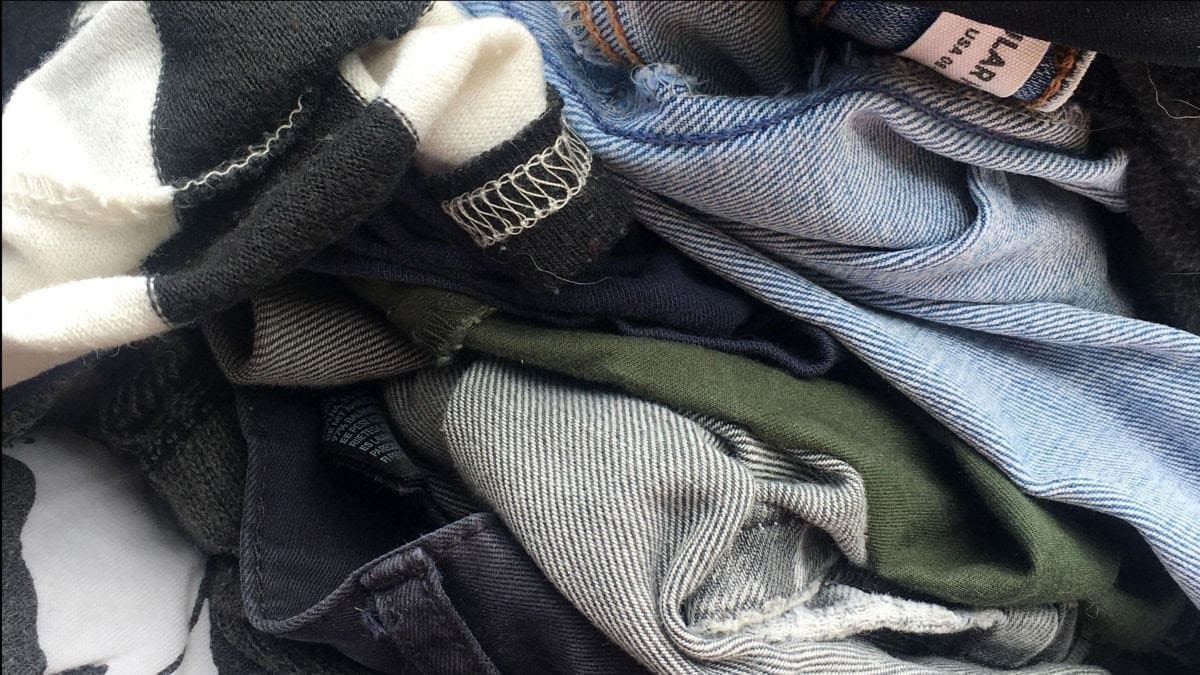AMSTERDAM – The amount of discarded textiles is increasing annually, with projections of further acceleration. Although some of this waste is reused, a significant proportion is diverted for recycling. To create the necessary infrastructure to effectively recycle these textiles, an understanding of their material composition is needed. The current textile sorting system, which relies heavily on manual input, cannot provide accurate insights given often unreliable and absent clothing labels.
Today, Fashion for Good launches the Sorting for Circularity Project to address this challenge on a scale greater than ever before. Bringing together key brands and industry leaders from across Europe, the project will conduct a comprehensive textile waste analysis using more accurate, innovative Near Infrared (NIR) technology, while also mapping textile recycler’s capabilities. This research will lead to an open digital platform to match textile waste from sorters with recyclers, enabling their alignment and building an infrastructure towards greater circularity in the years to come.
“The aim of the 18 month project is to create a greater link between textile sorters and textile recyclers; stimulating a recycling market for unwanted textiles that can generate new revenue streams for sorters. Traditionally, the sorting industry generates income through the sale of reusable textiles, with the remainder being downcycled, incinerated or landfilled. To achieve a circular system, a new end-market for non-reusable textile is required, with an infrastructure and digital matching system that can support activities of sorters and recyclers”– Katrin Ley, Managing Director, Fashion for Good
The Sorting for Circularity Project is driven by Fashion for Good with catalytic funding provided by Laudes Foundation and facilitated by brand partners, adidas, BESTSELLER, and Zalando, as well as Inditex as an external partner. Fashion for Good partners Arvind Limited, Birla Cellulose, Levi Strauss & Co., Otto and PVH Corp. are participating as part of the wider working group. Circle Economy leads the creation and implementation of the methodology, with support from Refashion, to assess textile waste composition. Both organisations build on their extensive experience from similar projects, such as the Interreg Fibersort Project and previous textile composition analyses.
The analysis will provide the most representative snapshot of textile waste composition generated in Europe. What is more, Fashion for Good and Circle Economy will map the current and future capabilities of textile recyclers in the region – illuminating crucial gaps between the sorting and recycling industry, and the innovation, investment and policy changes required to accelerate circularity.
Findings from this research will ultimately enable sorters to take action through the support of a digital platform that matches their textile waste with recyclers. This open-source platform will bring greater transparency, spark greater harmonisation between the industries, and ensure the learnings contribute to foundational change for the industry at large.
The project brings together the largest industrial textile sorters in the North-West European region; including the Boer Group, I:CO (a part of SOEX Group), JMP Wilcox (a part of Textile Recycling International) and TEXAID, placing key industry players firmly at the heart of the project and driving the industry towards greater circularity.
The French accredited Extended Producer Responsibility (EPR) eco-organisation Refashion, a key project partner, provides input into the methodology and leads the NIR scanner calibration. Aligning the Sorting for Circularity Project with their own study in France ensures methodologies and findings can be standardised, compared and implemented on a larger scale.

